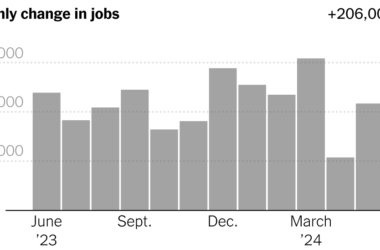Dr. John Wust, a well-established obstetrician-gynecologist from Louisiana, took a stand against unfavorable working conditions after years of running his own practice. When he joined Allina Health in 2009, he didn’t envision himself as a union advocate. However, as conditions worsened and doctors felt increasingly powerless in the decision-making process, he and more than 100 colleagues at an Allina hospital near Minneapolis decided to unionize. This move was a landmark decision as they became one of the largest groups of private-sector doctors to unionize. Similarly, about 400 primary-care physicians at Allina-owned clinics also joined the union.
Health care workers, including nurses and pharmacists, have also been voicing their concerns and have initiated work stoppages to protest against understaffing and increased workloads, especially after the pandemic.
The recent surge in labor actions can be attributed to the consolidation of health care companies, leaving employees feeling marginalized and deprived of professional autonomy.
While Allina and CVS have acknowledged the issues raised by their employees and have taken steps to address them, the trend of escalating dissatisfaction among health care workers is evident across various sectors.
Doctors, nurses, and pharmacists, who once enjoyed high social status, now feel suffocated by corporate structures. The shift towards stringent management and performance metrics has led to a growing sense of discontent and a realization that health care professionals are being treated as subordinates rather than respected experts.
The changing dynamics have resulted in decreased influence for the workers, whether it’s pharmacists facing strict performance metrics or doctors being evaluated based on corporate-driven patient management criteria. Such developments have led to a surge in unionization efforts among health care professionals who previously never considered themselves as potential union members.
The pandemic further exacerbated the situation, as overworked pharmacists and health care workers found themselves in increasingly strenuous conditions, grappling with mounting pressures and a lack of essential support. As a result, professionals who had never contemplated union membership began reaching out to unions to organize and advocate for their rights.








